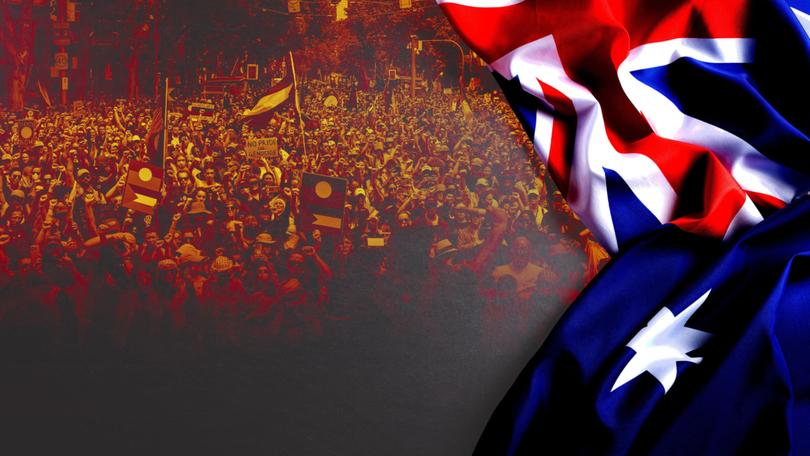JENI O’DOWD: Australia Day doesn’t have to divide us. It’s time to shift our approach entirely
JENI O’DOWD: There is no doubt January 26 is one of the most divisive dates on Australia’s calendar. But it doesn’t have to be.

There is no doubt January 26 is one of the most divisive dates on Australia’s calendar. But it doesn’t have to be.
The arguments are predictable: it’s a day of pain for First Australians, a controversial symbol of colonisation, and a relic of an era we’re trying to move beyond.
But perhaps we’re looking at this all wrong. Instead of abandoning January 26, we should reclaim it as a day for unity and reflection.
Sign up to The Nightly's newsletters.
Get the first look at the digital newspaper, curated daily stories and breaking headlines delivered to your inbox.
By continuing you agree to our Terms and Privacy Policy.January 26 marks Governor Arthur Phillip’s landing at Sydney Cove in 1788, a key moment in Australian history. However, the First Fleet did not all arrive on this date.
The fleet first reached Botany Bay between January 18 and 20. On January 25, some ships moved to Sydney Cove, where a British naval ensign was raised.
It wasn’t until February 7, 1788, that sovereignty over NSW was officially proclaimed with the raising of the Union Jack. These nuances are often overlooked but don’t diminish the symbolic importance 26 January has taken on over time.
January 26 also marks the beginning of the Nationality and Citizenship Act 1948, which came into effect in 1949 and made Australians citizens for the first time.
This law established a modern Australian identity, separate from British subjecthood, which is why citizenship ceremonies have become a key feature of Australia Day celebrations.
Changing the date won’t change history. Instead, it risks burying the uncomfortable truths we need to confront.
South Africa and the US didn’t move forward by erasing painful histories but by acknowledging them. January 26 can serve the same purpose: celebrating progress while reflecting on what remains unfinished.
Like many of us, I’m tired of the predictable debate over the day, which happens year after year. Instead of seeing the date as a problem, we should see it as an opportunity.
Australia Day has two conflicting meanings. For many, it is a day of pride in this country’s freedoms and opportunities.
But for Indigenous Australians, it’s a painful reminder of colonisation, loss, and ongoing struggles.
We should use January 26 to tell the whole story of our nation — the good, the bad, and the ongoing.
So, how can a date so loaded with division ever unify us? By confronting that division head-on.
Imagine a national day where traditional citizenship ceremonies are paired with truth-telling events, welcome to country ceremonies and celebrations of Aboriginal and Torres Strait Islander cultures. By making these elements a core part of January 26, we could create a day that reflects the full complexity of our history and our aspirations for the future.
Many local councils have taken the matter into their own hands, deciding not to hold citizenship ceremonies on that day.
The Daily Mail reported last week that at least 154 councils nationwide will not hold citizenship ceremonies on Sunday. Instead, they will mark the occasion with alternative events, such as healing ceremonies, flag-lowering ceremonies, or cultural festivals.
Deputy Opposition leader Sussan Ley promised that, if elected, the Coalition would reinstate the rule mandating councils hold citizen ceremonies on Australia Day.
The Albanese Government scrapped this rule in 2022, which led to many local councils cancelling citizenship ceremonies on January 26.
“It is time to end the division on Australia Day, and it is time for councils to get back in their lane,” Ms Ley said.
“It will be a sign of pride and nationalism in our country — a move for Australia and Australians to be united, not divided; to stand up for what we believe in.”
The reality is even more straightforward: most Aussies just want a day to celebrate what it means to be Australian, and they don’t care what date that falls on.
A 2017 poll by the Australia Institute found that only 38 per cent of Australians feel attached to January 26, while 49 per cent said they wouldn’t mind moving it. Yet more recent polling suggests growing support for keeping the date, showing how complex and evolving public sentiment is.
Changing the date isn’t the answer. It’s not about erasing history or avoiding hard truths.
Instead, we should use January 26 to tell the whole story of our nation — the good, the bad, and the ongoing.
By reclaiming the day as one of unity and reflection, we can move towards a future where every Australian feels included and valued.
